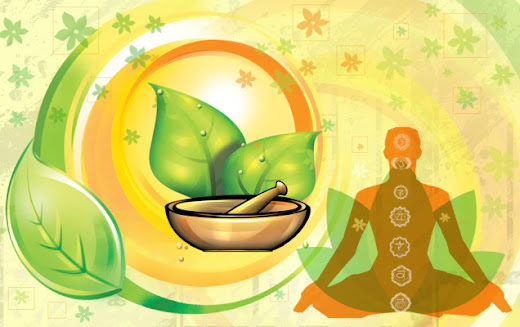Hemorrhoids
Piles, or heaps, are a typical problem. These inflamed veins inside the rectum or outside the rectum can cause discomfort, anal itching and anal blood loss. Symptoms often enhance with at-home therapies but on occasion individuals need clinical treatments. Consuming a lot more fiber can aid prevent hemorrhoids.
What are hemorrhoids?
Piles are swollen, bigger veins that develop inside as well as outside the rectum and anus. They can be agonizing, unpleasant and also create anal bleeding. Hemorrhoids are additionally called heaps. We're all born with hemorrhoids, yet at standard, they never mind us. It's just when they become swollen as well as enlarged that they create bothersome signs.Just how common are piles?
An approximated 1 in 20 Americans have symptomatic piles. They influence people of all ages, genders, races and ethnic backgrounds. They're much more usual as you age, impacting more than half of individuals over age 50.Who might get piles?
Any individual can obtain symptomatic piles, even teenagers. (Because hemorrhoids take a while to develop, they're uncommon in youngsters.) You might be extra at risk if you:- Are overweight or obese.
- Are expectant.
- Eat a low-fiber diet regimen.
- Have persistent irregular bowel movements or diarrhea.
- On a regular basis lift heavy items.
- Spend a lot of time sitting on the commode.
- Strain while having bowel movements.
What are the types of hemorrhoids?
Piles can occur inside or outside the rectum. The kind depends upon where the inflamed capillary establishes. Kinds consist of:Exterior: Puffy blood vessels develop beneath the skin around the anus. Your anus is the canal where poop comes out. External piles can be itchy and also agonizing. Sometimes, they hemorrhage. Sometimes they full of blood that can embolisms. This is not harmful, however can cause pain and swelling.
Internal: Puffy veins create inside the rectum. Your anus is the part of the digestive system that attaches the colon (huge intestine) to the rectum. Internal piles might hemorrhage, however they usually aren't excruciating.
Prolapsed: Both interior and external hemorrhoids can prolapse, implying they stretch as well as bulge outside of the anus. These hemorrhoids may bleed or cause discomfort.
What's the distinction between piles and also anal fissures?
Hemorrhoids and also rectal fissures create similar symptoms, such as itchiness, pain and also blood loss. While swollen blood vessels create hemorrhoids, a tear in the lining of the anus triggers an anal crack. Your health care give will do a physical exam and also might order examinations to discover what's creating your signs and symptoms.
SIGNS AND SYMPTOMS AS WELL AS CAUSES
What causes piles?
Straining puts pressure on capillaries in the rectum or rectum, triggering piles. You might think about them as varicose capillaries that influence your base.
Any type of kind of straining that raises stress on your stubborn belly or lower extremities can trigger rectal as well as anal blood vessels to become swollen and also irritated. Piles may establish because of:
Pelvic stress from weight gain, especially while pregnant.
Pushing difficult to have a defecation (poop) as a result of irregular bowel movements.
Stressing to lift hefty things or weight-lifting.
What are the symptoms of hemorrhoids?
Interior hemorrhoids seldom cause pain (and usually can not be really felt) unless they prolapse. Many individuals with inner piles don't recognize they have them due to the fact that they do not have symptoms.If you have signs of interior piles, you might see blood on toilet paper, in feces or the toilet dish. These are indications of rectal bleeding.
Indicators of external hemorrhoids include:
- Scratchy anus.
- Difficult swellings near the anus that feel sore or tender.
- Pain or ache in the rectum, specifically when you sit.
- Rectal bleeding.
Prolapsed piles can be excruciating and uneasy. You may have the ability to feel them protruding outside the rectum and delicately push them back within.
What other conditions trigger hemorrhoid-type symptoms?
Different gastrointestinal disorders can create rectal blood loss as well as other signs similar to hemorrhoids. Some of these conditions are dangerous. Therefore, it's important to let your healthcare provider know when you're having symptoms.
What other conditions trigger hemorrhoid-type symptoms?
Different gastrointestinal disorders can create rectal blood loss as well as other signs similar to hemorrhoids. Some of these conditions are dangerous. Therefore, it's important to let your healthcare provider know when you're having symptoms.
Bowel diseases that can create bleeding consist of:
- Colon cancer cells.
- Crohn's illness.
- Ulcerative colitis.
- DIAGNOSIS AS WELL AS TESTS
Just how are piles detected?
Your doctor identifies piles based upon symptoms as well as a physical exam. You may likewise have:Digital rectal examination: Your company inserts a gloved, moisturized finger into the anus to feel for inflamed blood vessels.
Anoscopy: Your service provider makes use of an anoscope (lighted tube) to watch the lining of the anus and rectum.
Sigmoidoscopy: Your company utilizes a sigmoidoscope (lighted tube with a camera) to see inside the lower (sigmoid) part of the colon and also anus. Procedure kinds consist of adaptable sigmoidoscopy and also inflexible sigmoidoscopy (proctoscopy).
These examinations might be awkward yet aren't excruciating. They generally take place in a doctor's office or outpatient center without anesthetic. You go home the exact same day.
Your carrier may carry out a colonoscopy to verify searchings for from other examinations or look for indicators of colon cancer cells. This outpatient treatment requires anesthesia.
MONITORING AND ALSO THERAPY
What are the complications of piles?
Hemorrhoids can be uneasy and also unpleasant, however they don't tend to trigger serious issues. Rarely, people with hemorrhoids create:- Anemia.
- Embolism in outside piles.
- Infection.
- Skin tags (flap of cells that hangs off skin).
- Strangulated hemorrhoids (muscles in the anus removed blood flow to a prolapsed inner pile).
Just how can I treat hemorrhoids in the house?
Hemorrhoids usually vanish on their own without therapy. Signs and symptoms like discomfort and bleeding may last one week or slightly longer. In the meantime, you can take these steps to relieve signs and symptoms:
Apply over the counter medications having lidocaine, witch hazel or hydrocortisone to the damaged location.
Apply over the counter medications having lidocaine, witch hazel or hydrocortisone to the damaged location.
Drink a lot more water.
Increase fiber consumption through diet plan as well as supplements. Try to acquire at least 20-35 grams of everyday fiber intake
Soak in a warm bath (sitz bath) for 10 to 20 mins a day.
Soften feces by taking laxatives.
Take nonsteroidal anti-inflammatory medications (NSAIDs) for pain and also swelling.
Use bathroom tissue with cream or flushable damp wipes to carefully pat and also cleanse your bottom after pooping. You can additionally use a cells or washcloth moistened with water. (Discard wipes in the garbage, not by flushing. Launder washcloths separately in hot water to prevent spreading infections commonly found in poop.).
How do doctor treat hemorrhoids?
You must see your healthcare provider if signs and symptoms worsen or interfere with your day-to-day live or rest. Also seek aid if indicators do not boost after a week of at-home therapies. Your supplier may treat hemorrhoids with:.Elastic band ligation: A small elastic band positioned around the base of a hemorrhoid cuts off blood supply to the vein.
Electrocoagulation: An electrical present stops blood flow to a pile.
Infrared coagulation: A small probe placed into the anus sends heat to remove the hemorrhoid.
Sclerotherapy: A chemical injected into the inflamed vein damages hemorrhoid tissue.
Surgical therapies consist of:.
Hemorrhoidectomy: Surgery gets rid of big external hemorrhoids or prolapsed interior ones.
Hemorrhoid stapling: A stapling instrument removes an inner hemorrhoid. Or it pulls a prolapsed inner pile back inside the anus and also holds it there.
PREVENTION.
Just how can I prevent piles?
Piles prevail as you get older. These actions can assist protect against difficult feceses as well as irregularity that can result in piles:.Do not rest too long or push as well hard on the toilet.
Go the commode when need hits-- do not postpone bowel movements.
Consume plenty of water throughout the day.
Consume much more high-fiber foods (fresh fruits, vegetables and also whole grains) or take supplements. Typically, females must aim for 25 grams of fiber per day, while males must get 35 grams of fiber.
Stay physically active. Being on the move maintains bowels relocating.
Take laxatives or make use of enemas only as advised by your doctor. A lot of laxatives or injections can make it hard for your body to control exactly how you poop.
OVERVIEW/ PROGNOSIS.
What is the diagnosis (overview) for people that have piles?
Most hemorrhoid signs and symptoms boost within a week with home treatments. If hemorrhoids create extreme discomfort and discomfort, a medical procedure or perhaps surgery may assist.LIVING WITH.
When should I call the physician?
You should call your healthcare provider if you suspect piles and also experience:.- Stomach discomfort.
- Persistent constipation or looseness of the bowels.
- High temperature and also cools.
- Nausea as well as vomiting.
- Serious rectal bleeding as well as discomfort.
What concerns should I ask my physician?
You might want to ask your doctor:.
What way of life modifications can I make to avoid obtaining piles once again?
You might want to ask your doctor:.
Why did I obtain piles?
What is the most effective treatment for me?What way of life modifications can I make to avoid obtaining piles once again?
When will signs and symptoms enhance?
Should I watch out for indications of complications?A note from Cleveland Center.
An estimated 15 million Americans have sought therapies for hemorrhoids at some time in their lives. Yet much more endure unnecessarily. Do not be too humiliated to speak to your healthcare provider about your symptoms. If piles create discomfort or discomfort, your company has therapies that can aid. You can also take steps to maintain piles from coming back.





Comments
Post a Comment